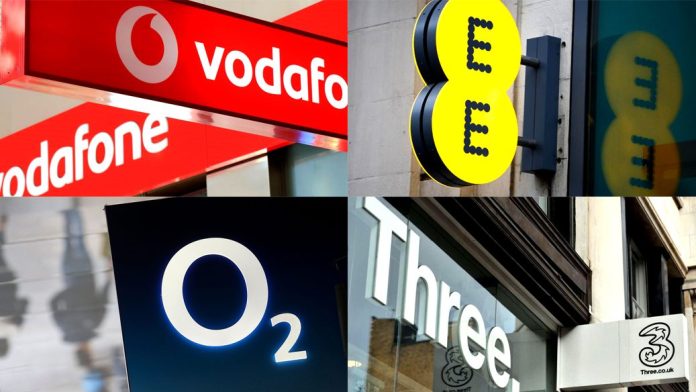UK carriers have paid £1.35 billion ($1.9bn) in the first stage of bidding for new 3.4 GHz radio spectrum, for use with 5G services, including high-bandwidth IoT-based concepts like autonomous driving. The new 3.4GHz allocation is the first bandwidth to be made available for UK 5G services from 2020, after the technical standards are agreed.
UK regulator Ofcom has auctioned both newly-available 3.4 GHz spectrum, earmarked for 5G services, and 2.3 GHz spectrum, for improving 4G capacity. Five companies have been involved in the auction, with the four UK-based network operators splitting the auction proceeds.
Vodafone offered the most for the biggest slice of 3.4GHz spectrum, paying £378.2 million ($531m) for 50 megahertz of the 5G band. Telefónica-owned O2 and BT-owned EE paid £317.7 million ($446m) and £302.6 million ($424.9m), respectively, for 40 megahertz of the spectrum band. Hutchison-owned Three picked up 20 megahertz of 3.4 GHz spectrum at a cost of £151.3 million ($212.4m).
In addition, Telefónica UK won all of the 40 megahertz of 2.3 GHz spectrum that was put up for auction, for a fee of £205.9 million ($289m). Telefónica UK’s total fee is £523.6 million ($735.1). At the same time, it claimed the lowest spend per MHz of any bidder. A fifth bidder, Softbank-backed Airspan Spectrum Holdings, failed to win spectrum in either band.

This first stage of bidding involved 34 ‘lots’ of spectrum being made available across the two frequency bands. Ofcom will subsequently move to the final ‘assignment’ stage, allowing companies with new spectrum to determine where in the frequency bands their new spectrum will be located. Licences will be issued within days of these allocations, allowing 5G services to be switched on.
The spectrum acquired has a 20-year term and converts to perpetual licences thereafter.
Marc Allera, chief executive of BT’s consumer division, said: “The acquisition positions us well for our launch of future 5G services and consolidates our position as one of the world’s leading providers of communications services. With this outcome, we’ll continue to roll out the fastest 4G service to consumers and businesses across the UK, and now look ahead to the potential new services that 5G will offer, keeping our nation at the forefront of digital communications.”
Telefónica UK, which was blocked by the European Union’s competition regulator from selling to Hutchison UK in 2016, said the investment confirmed its renewed commitment to the UK. “We’ve thrown down a major marker for our future commitment to the UK. Our investment in 3.4GHz enables us to move forward to further improve connectivity whilst boosting the economy and laying the foundations for 5G in Britain,” said Mark Evans, chief executive at Telefónica UK.
Telefónica also pointed to its new 5G test bed at The O2 in North Greenwich, in London, and its ‘5G ready’ small cells, already deployed in the City of London and Aberdeen. “This infrastructure will allow for the future delivery of critical services like tele-health and connected transport, with recent research revealing 5G services could generate £6 billion ($8.4bn) in productivity savings for the UK economy,” it said in a statement.
Kester Mann, senior analyst at CCS Insight, said the win was crucial for Telefónica. “Three may have made most of the noise, but O2 needed the spectrum the most,” he said, in reference to the lobbying of the regulator by the UK’s two smaller operating companies, and its smallest in particular.
Mann also noted top-spend Vodafone made a statement with its bidding, making clear “its renewed commitment to the market following several years in the doldrums.” Vodafone made no statement beyond its acknowledgement of the result.
Three UK said: “5G technology is exciting for consumers and mobile operators and we are now in the process of planning how best to launch 5G services to the maximum benefit of our customers.”
In the end, bidding outran analysts’ expectations, which expected the total to finish closer to £1 billion ($1.4bn). Even so, the 5G dividend comes some way short of the staggering £22 billion ($30.9bn, at today’s rates) UK operators paid for 3G spectrum in 2000, and the £2.3 billion ($3.23bn) they paid for LTE-based 4G spectrum in 2013. All proceeds go to the UK government.
Philip Marnick, Spectrum Group Director at Ofcom: “This is good news for everyone who uses their mobile phone to access the internet. As a nation we’re using ever more mobile data on smartphones and mobile devices. Releasing these airwaves will make it quicker and easier to get online on the move. It will also allow companies to prepare for 5G mobile, paving the way for a range of smart, connected devices.”

